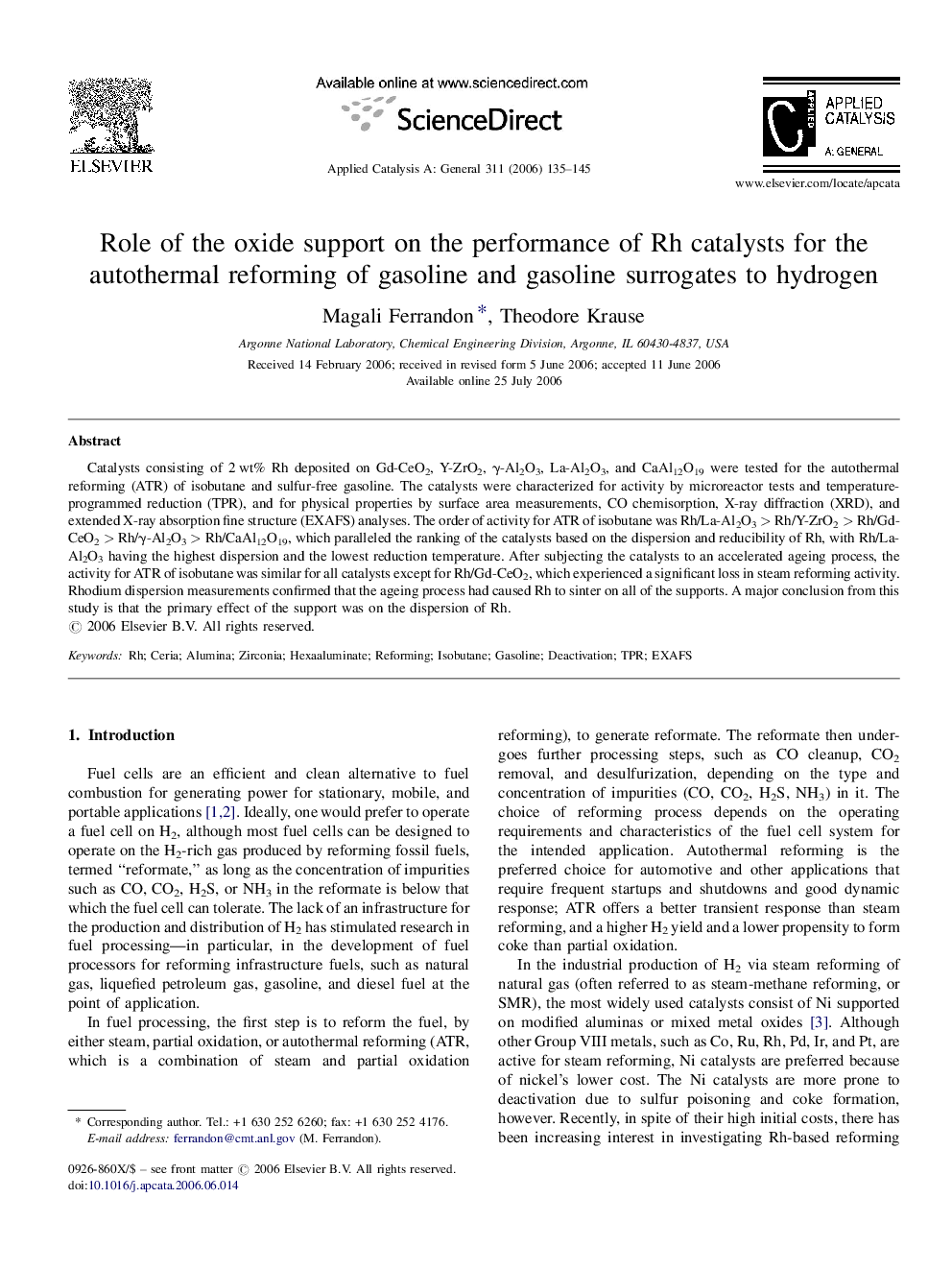| Article ID | Journal | Published Year | Pages | File Type |
|---|---|---|---|---|
| 44657 | Applied Catalysis A: General | 2006 | 11 Pages |
Catalysts consisting of 2 wt% Rh deposited on Gd-CeO2, Y-ZrO2, γ-Al2O3, La-Al2O3, and CaAl12O19 were tested for the autothermal reforming (ATR) of isobutane and sulfur-free gasoline. The catalysts were characterized for activity by microreactor tests and temperature-programmed reduction (TPR), and for physical properties by surface area measurements, CO chemisorption, X-ray diffraction (XRD), and extended X-ray absorption fine structure (EXAFS) analyses. The order of activity for ATR of isobutane was Rh/La-Al2O3 > Rh/Y-ZrO2 > Rh/Gd-CeO2 > Rh/γ-Al2O3 > Rh/CaAl12O19, which paralleled the ranking of the catalysts based on the dispersion and reducibility of Rh, with Rh/La-Al2O3 having the highest dispersion and the lowest reduction temperature. After subjecting the catalysts to an accelerated ageing process, the activity for ATR of isobutane was similar for all catalysts except for Rh/Gd-CeO2, which experienced a significant loss in steam reforming activity. Rhodium dispersion measurements confirmed that the ageing process had caused Rh to sinter on all of the supports. A major conclusion from this study is that the primary effect of the support was on the dispersion of Rh.
